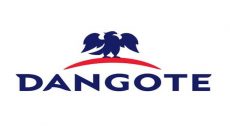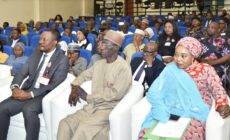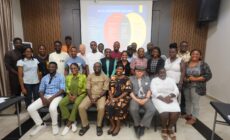On behalf of the National Council on Privatisation (NCP) and its secretariat, the Bureau of Public Enterprises (BPE), I would like to formally welcome you to this important milestone in the Bureau’s transaction life cycle. I especially welcome all the bidders who by their participation in the privatisation programme up to this point, have demonstrated faith in the reform programme and by so doing, strengthened our resolve to ensure that the integrity and transparency of this process is maintained until its logical conclusion.
Today’s event is a significant leap forward for the public enterprise reform programme of the Federal government, after a few years in the doldrums. It is also lamdmark for me personally because it is the first financial bids opening ceremony since I assumed leadership as Director General at the Bureau exactly six months ago. However, it is our fervent hope that this is only the restart of a transaction pipeline that is being reengineered and reinvigorated to deliver on the commitment of the administration of President Muhammadu Buhari to deliver the kind of responsible privatization and enterprise reform program which the generality of Nigerians deserve and have yearned for.
The path we are taking is borne of a vision of rediscovery and repositioning, which we have articulated and named the New Enterprise Transformation Strategy (NETS). This strategy aims to rediscover and reinvent the high standards that had driven efficiency and effectiveness in the Bureau’s operations and programme delivery in the past, but now with a clear focus and roadmap for the future. The Rediscovery element of this strategy will lead the Bureau to retrace and redefine its core values and reclaim its culture of integrity, transparency, professionalism, knowledge and competence. Rediscovery means re-examining what has worked before and what hasn’t worked so well.
The Repositioning pillar on the other hand, would ensure that the Bureau engages the future effectively and with confidence, to guarantee that the objectives of the enterprise reform programme are achieved. Repositioning will ensure that we learn valuable lessons from the programs that haven’t worked so well, and apply the lessons to ensure better outcomes for current and future programs. We are therefore, finding new ways of thinking and doing that will address those gaps and make our processes better, more effective and guaranteed to deliver on our core mandate.
In the process of delivering our mandate, the key attributes of integrity and transparency of the transactions and reform programs we manage are very important and will not be compromised. The professionalism with which we handle the transactions to deliver the best possible outcomes for those enterprises that we seek to reform is also very important. I am proud to say we are making solid progress on this path.
I am so pleased that today, as a result of our collective resolve to chart a clear and bold direction for the Bureau, we are witnessing the opening of financial bids for five subsidiaries of the Nigerian Mining Corporation (NMC) and also the bids for the technical consultants for power sector monitoring.
POWER SECTOR MONITORING
Kindly permit me to dwell a little first on the power sector. This is one of the most critical sectors of our economy and the Federal Government of Nigeria (FGN) is desirous of seeing that the privatisation programme brings significant improvement to the sector.
The Bureau’s role did not end with midwifing the privatising the power companies. Our mandate requires us to ensure the success of the privatisation through continuous monitoring of the enterprises for such periods as may be considered necessary and in line with the obligations covenanted in the agreements that the core investors and concessionaires signed with the FGN.
To address noticeable gaps of the past, we have introduced a robust corporate governance framework for the Bureau’s representation of the FGN on the Boards of enterprises in which the FGN retains some equity holding or shares, and a strict code of ethics which guides the rules of engagement with the enterprises has been implemented.
However, In addition to these measures, the critical and complex nature of the power sector requires that BPE seeks the assistance of external consultants with the requisite experience and technical know-how to help put in place robust mechanisms to monitor and manage some of the post-privatisation challenges facing the sector. The successful consultants will also help the Bureau in monitoring the activities of the power generation and distribution companies and provide feedback to the government on the core investors’ adherence to the Performance Agreements signed with the government with the ultimate objective of ensuring that the power sector reforms deliver adequate, reliable, efficient and affordable power to Nigerians.
The procurement process for technical consultants to help monitor the privatised power companies started in 2015 but stalled for two years. The recommencement of this process today is a clear demonstration of FGN’s resolve to discharge its monitoring responsibility over these enterprises for the benefit of all Nigerians.
In this regard, I would like to commend the patience of all the consulting firms that waited, believed in the process and submitted proposals is response to our Requests for Proposal (RfP).
At the end of today’s proceedings, it is our hope that at least four to six firms would emerge after the equalisation of the technical and financial results. Thereafter, results will be recommended to the NCP for approval. The Bureau will then commence negotiation of the contract terms with the firms that subsequently emerge from this process.
NMC SUBSIDIARIES
There are five subsidiaries of the NMC for which financial bids will be opened today. These are:
1) Naraguta Bricks & Clay Company Ltd, Jos Plateau State
Naraguta Bricks & Clay Company Limited was commissioned in 1979. It is located in Naraguta Village about two kilometres off the Jos-Bauchi Road in Plateau State and is wholly-owned by the NMC with the main objective of producing bricks and building materials.
The Federal Government owns 75% of the shares while Plateau State Government owns the remaining 25%. The company has two licenses QLC 10402 and QLC 10413 which over time, have expired and the new investor in collaboration with BPE, will engage with the Mining Cadastral Office for the issuance of new mining licenses.
2) Maiduguri Bricks & Clay Products Ltd, Maiduguri, Borno State
Maiduguri Bricks and Clay Products Limited was incorporated on November 25, 2002. The main factory is situated along Gere Road in Shuari area of Maiduguri, Borno State. The plant was built to operate at 15 million normal sized bricks (250*120*60mm) per annum. The company last operated in 1985 and is 100 percent owned by NMC.
3) Terrazzo Company Limited (NTL), Gurum, Jos, Plateau State
NIMCO Terrazzo Company Limited (NTL) is 100% owned by NMC. The company was incorporated on June 10, 1987 as a private limited company. Its main factory is located at Gurum, 10 Kilometers off Jos – Zaria Road and was established for the production of floor tiles.
4) Kujama Quarry, Kaduna
This plant is owned by NIMCO Quarry Products Limited. It was established for the purpose of producing stone aggregates. The site is located about 32 kilometres along Kaduna – Kachia road in Kaduna State. The quarry commenced operations in 1978 but was shut down in 1994. The quarry covers an area of nine acres with an outcrop estimated at 2.2m tonnes.
5) Gano Quarry, Kano State.
Gano Quarry Limited is also owned by NIMCO Quarry Limited and commenced operation in 1977 but ceased in 1983. The site is located in Kano on Km 32, along Maiduguri Road. The land does not belong to NMC but to the community. The company was closed down partly because of bad management, lack of maintenance and cannibalization.
CONCLUSION
I would like to close my remarks by expressing the Bureau’s profound gratitude for the support and guidance we have been receiving from the NCP and in particular, its Chairman, the Vice President of Nigeria, His Excellency, Professor Yemi Osinbajo (SAN).
I also want to commend the Minister of Mines and Steel Development and the management of the NMC for their cooperation and commitment to ensuring that the NMC transactions are successfully concluded. The Chairman of the NCP’s Technical Committee, Alhaji M.K Ahmad, and other members of the NCP’s Technical Committee, also deserve our appreciation for their role in actualising these transactions. To the Bureau’s staff who have rededicated themselves to the Bureau’s new vision of robust and responsible public enterprise transformation agency, I say well done and keep up the good work.
Finally, I thank all the investors and consultants that have participated in this process so far for their faith in the privatisation program and wish the investors and consultants that emerge successful today the very best.
Thank you and God bless.
ALEX A. OKOH
October 24, 2017

























